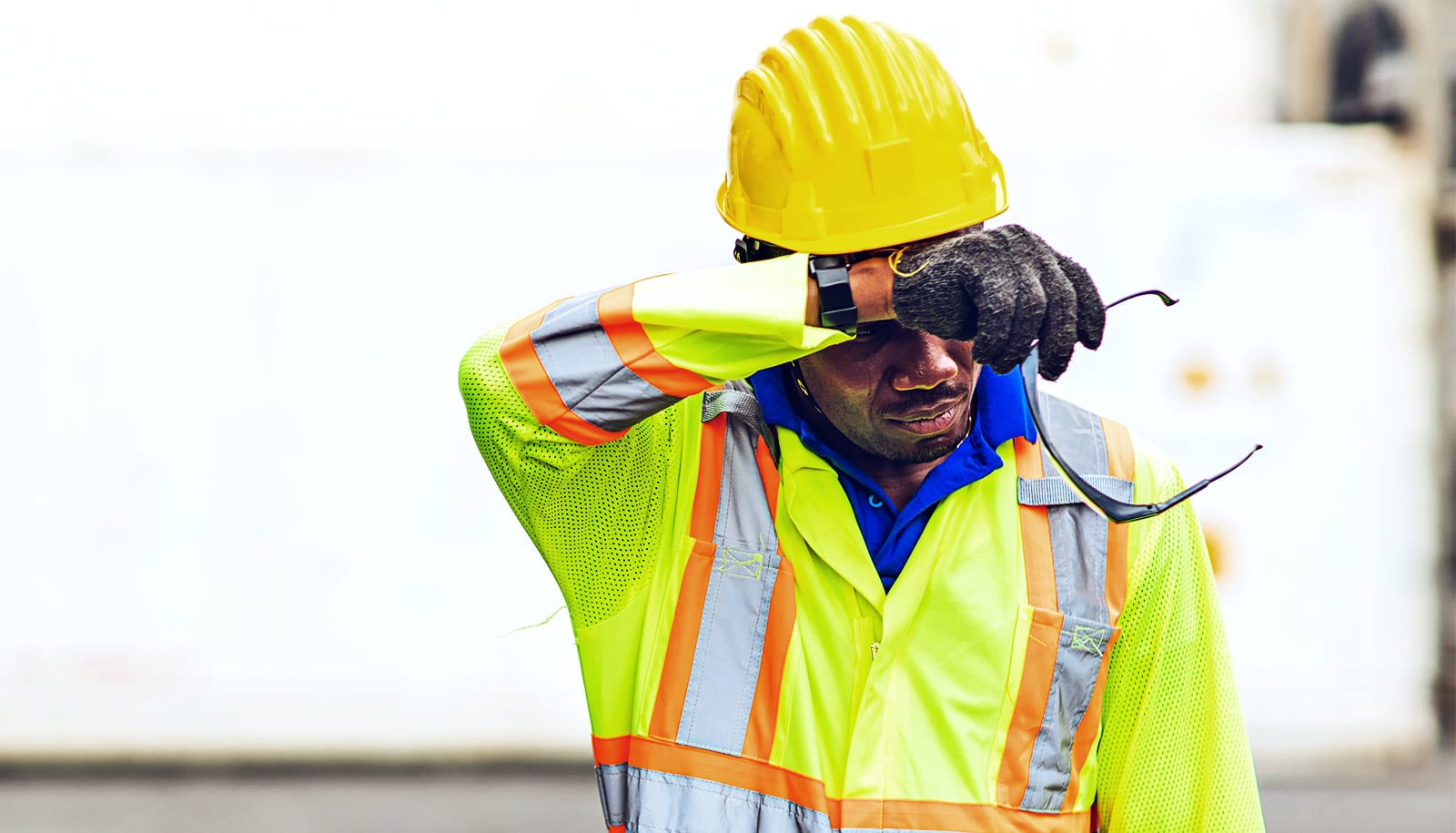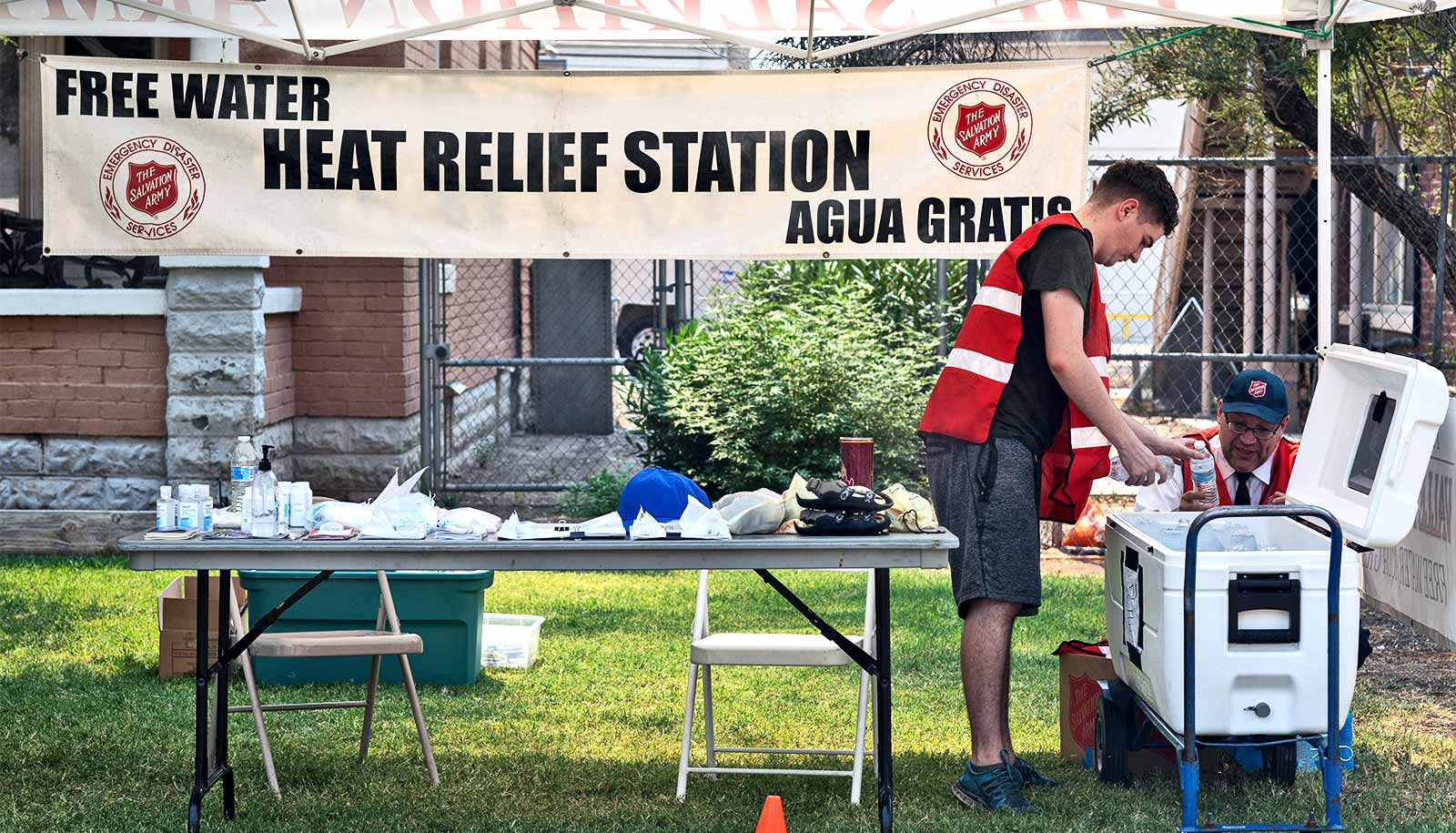Summer is upon us and things are heating up, literally. That’s worrisome given the effect that heat has on human health, both on the body and the mind.
The first major heat wave of the season scorched the western United States in recent weeks, with temperatures climbing to 114 degrees Fahrenheit in Las Vegas, and to a record-breaking 118 degrees in Phoenix.
The Pacific Northwest shattered previously recorded temperature highs, with many regions trapped under what experts called a blistering “heat dome.” In Boston, while a heat emergency was in effect, the city tied its record highs—which had stood since 1933—on June 28 and 29.
These hot days are not isolated events, and they are only going to get more common: the first comprehensive worldwide assessment of heat waves, a report released last summer, uncovered that in nearly every part of the world, heat waves have been increasing in frequency and duration since the 1950s.
Gregory Wellenius, professor of environmental health and director of the Program on Climate and Health at Boston University researches the human health impacts of a rapidly changing climate. His team aims to ensure that our communities are as resilient, sustainable, and healthy as possible, studying how climate change mitigation and adaptation policies can benefit human health.
Here, he answers some questions about how heat exposure impacts physical and mental health, policies that can ensure equitable access to “cooling centers,” and tips for staying safe when temperatures reach dangerous highs:
How do you measure the impacts of heat on health?
My team links detailed data on local weather to very large clinical datasets in order to study the impacts of heat and other climate hazards on people’s health and well-being. We then use statistical methods to quantify the impacts of extreme heat on a range of clinical outcomes in communities around the country.
What happens to the body as a result of exposure to extreme heat?
Hot days can lead people to suffer from dehydration, heat exhaustion, and in extreme cases, heat stroke. But hot days are also associated with higher risk of a number of other conditions that are not typically thought to be “heat-related,” such as [kidney] problems, skin infections, and preterm birth among pregnant women.
In fact, heat stroke, heat exhaustion, and dehydration account for a relatively small fraction of the total [health risks] associated with days of extreme heat. And interestingly, it’s not just extreme heat that poses a risk. Even moderately hot days can place vulnerable individuals at higher risk.
How does heat exposure affect the brain and mental health?
A growing body of evidence suggests that days of high temperatures may negatively affect our mental health. For example, a recent study in New York found that hot days were associated with higher risk of emergency room visits for substance abuse, mood and anxiety disorders, schizophrenia, and dementia.
Other studies show that hot weather is linked to lower performance on standardized tests, higher risk of judgement errors, and higher risks of occupational injuries. So, although there is a lot more work to do to get the full picture, it is becoming clear that heat has important effects on cognition, mood, and other aspects of our mental health and well-being.
What factors make someone more likely to be affected negatively by heat exposure?
Very hot days put everyone at risk, but there is no question that some groups and some communities are at greater risk than others. Outdoor workers—such as agricultural workers, construction workers, and landscapers—are at particularly high risk of heat-related illness.
Elderly people, pregnant women, those with certain preexisting diseases, and those without access to air conditioned spaces are also at higher risk. In some communities, the lack of trees and parks makes those neighborhoods even warmer than the surrounding areas, contributing to the urban heat island [effect]. People that live in urban heat islands are also thought to be at higher risk.
Your research recently revealed that how dangerous heat exposure is might depend on where someone lives. Can you explain what that means?
Over time, people and communities partially adapt to their local climate. For example, homes in Phoenix or Houston, cities that tend to have many hot days each summer, are more likely to have air conditioning as compared to homes in [northern New England or the Pacific Northwest], where summers are historically less hot.
The typical climate in an area affects many aspects of how we live, move, work, and play. Characteristics of the population can also affect vulnerability to heat. Communities with many older individuals or with more people working outdoors may face a higher risk than neighboring communities with different demographics.
What factor does air conditioning play in heat exposure risk?
Many people have access to cool spaces during extreme heat either at work or at home. However, not everyone works in an air conditioned office or store and not everyone can afford the electricity needed to run a home air conditioner.
People that are most vulnerable to heat—[such as the elderly, people who live in urban heat islands, or people who work outside]—are often the ones with the least access to cool spaces. Some cities open or advertise designated “cooling centers” open to the public during extreme heat events, but these may not be accessible to those without transportation or those that need to work during the day, leaving many vulnerable people at risk.
What steps can people take to protect their health when temperatures are high?
The most important thing for everyone to do is to be aware that the health risks of extreme heat are real and important. Individuals should stay out of the sun as much as possible, drink a lot of water, and find places to cool off when needed.
It’s also important that we all check in on our neighbors and loved ones to see if they need help or care, as not everyone recognizes the risks of extreme heat or has the means to seek cool spaces or medical attention when needed.
What’s the difference—and the link—between climate and weather?
Weather refers to the local conditions outside today, this week, or this month—while climate describes the typical weather over a period of 30 years or longer. Continued climate change makes extreme weather events—such as days of high heat, hurricanes, wildfires, or droughts—more likely.
How would you respond to people that say climate change is a normal, gradual process and that extreme weather events are expected now and then?
Climate change isn’t about the future or danger to people in some far off place. The threat from climate change to our health is real, with material impacts on all of our communities right now. Although there are many aspects of climate change that can be contentious, no one wants to see their friends and loved ones suffer from death, disease, or distress.
We need to share with people how climate change threatens our health and well-being today and the enormous cost of continued political inaction. Climate change is already impacting nearly every aspect of how we live, work, and play. Taking action today can help us avoid even worse outcomes in the future.
From a policymaking perspective, what principles should guide heat action plans?
Every community is different in terms of the risks, vulnerabilities, and resources. That means that heat action plans need to be developed by local agencies in partnership with the local communities they serve, building on best practices and shared knowledge from other regions. There is no one-size-fits-all heat action plan.
Source: Katherine Gianni & Molly O’Brien Gluck for Boston University


